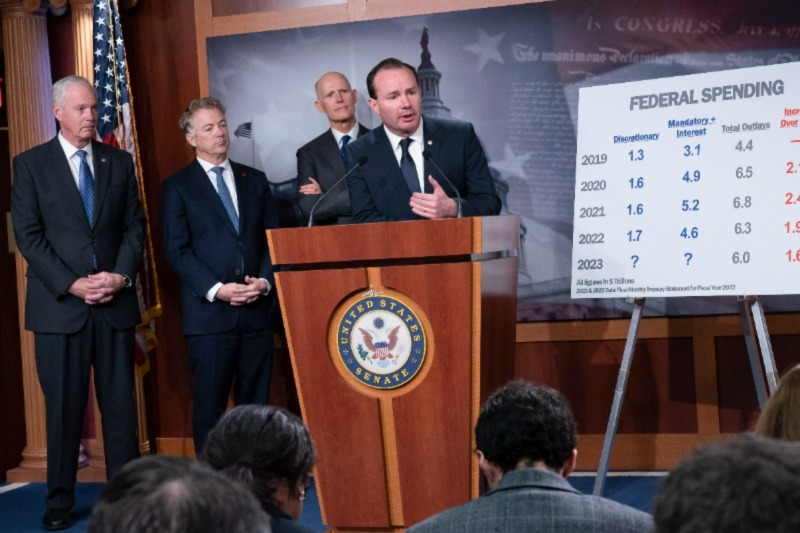

OAN Newsroom Shannon Kelland
UPDATED 6:33 PM PT – Wednesday, December 14, 2022
An Omnibus Spending bill will be introduced to the House within the upcoming days.
An Omnibus Spending bill is a type of bill that brings together smaller appropriation bills into one large bill. It is still unclear what is in this piece of legislation. What is known, is that the spending bill has no budget, no outlay and is thousands of pages long with 7,500 earmarks.
During Thursday’s press briefing on government spending, GOP leaders spoke out. Senator Rand Paul (R-Ky.) expressed how he will not vote to pass the bill. With the limited time Congress will receive to review the legislation, most likely no one will read it in its entirety, or read it at all.
“This is a NIGHTMARE way to run the government and I won’t participate in it and tell them this is a rotten no-good way to run a country,” Paul said.
Paul also mentioned that blame for a government shutdown will be put on the Republicans and not on the Democrat legislators, when they vote no. In actuality, GOP leaders do not want a shutdown but want to spend less money and accumulate less debt.
Senator Mike Lee (R-Utah) proposed that instead of a shutdown, Congress should pass a continuing resolution, since the Democrats “couldn’t get their act together enough” to plan for an entire fiscal year.
Even though all senators say they do not generally like continuing resolutions, the purposed resolution of a short-term spending measure would move the spending deadline out by a few weeks. This would allow the next Congress to replace it and then to pass spending legislation for the remainder of the fiscal year. In addition, the continuing resolution does not stop Congress from passing the upcoming bill.
“If Congress wants to pass an omnibus, it’s not likely to get my vote, but we should at least allow our colleagues to do that with clear heads and not through this extorted threat,” says Lee.
Senator Ron Johnson (R-Wis.) believes that the government can balance the budget with smarter spending because the country’s deficit spending is fueling the nation’s inflation. He commented that the value of a dollar before the Biden administration is now worth 88 cents presently.
Senator Rick Scott (R-Fla.) and many others agreed with Johnson’s demanding of less reckless spending. Scott also explained that the legislation proposes spending more money when more important decisions within the process need to be made.

